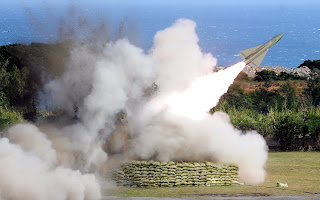 Minority parties in Taiwan and Hong Kong face the remnants of a Leninist past and increasingly powerful conglomerates and vested interests, which bodes ill for democracy and good governance
Minority parties in Taiwan and Hong Kong face the remnants of a Leninist past and increasingly powerful conglomerates and vested interests, which bodes ill for democracy and good governanceAmid a growing sense of disenfranchisement, young people in Taiwan and Hong Kong are increasingly angry and want their governments to pay more attention to them, two panelists told a conference on democracy building in Taipei yesterday.
Speaking during a panel on majority and minority rights in government at the “Democracy Building in Interesting Times” conference organized by the Taiwan Foundation for Democracy, the Heritage Foundation and Institute for National Policy Research, Alan Leong (梁家傑), a pro-democracy activist and one-time contender for the post of Hong Kong chief executive, said that while about 60 percent of people in Hong Kong support full democracy, its advocates remain the minority in the Legislative Council.
“Functional constituencies” representing the interests of conglomerates, big business and other small groups, as well as interference by Beijing, ensure that these legislators are forever in the opposition, said Leong, leader of the Civic Party.
That system, he said, gives those “vested powers” de facto veto powers and ensures that the “fruits of economic success” are not shared evenly and remain in the hands of the few.
Leong also said that in light of the proposed electoral models for the elections of chief executive and the Legislative Council in 2017 and 2020 respectively, “there is practically no way that Hong Kong can see universal and equal suffrage” applied during the vote.
Speaking of the deficiencies in the system, Leong said: “It is indeed a coincidence that the Hong Kong people comes to expect so much from the opposition parties in a system where the opposition is supposed to be irrelevant and ineffective.”
“This is not what the designer of our political system had in mind,” he said.
My article, published today in the
Taipei Times, continues
here.
The end of this article stemmed from a question — admittedly a loaded one — that I asked Mr. Leong, in that I prompted him to talk about identity. Unexpectedly, this engendered a response that included the contention that Taiwan is part of China, which to me confirmed yet again that even democracy activists in China and Hong Kong cannot necessarily be counted on to be supporters of Taiwan independence. Experiences can be shared, the desire for democracy can be common, but self-determination and the rights of minority, as Chinese academic Wang Lixiong (王力雄) has argued, are not necessarily matters such individuals are willing to support.
 After weeks of asking the Straits Exchange Foundation for updates on the submission of the ECFA to the WTO, the Bureau of Foreign Trade finally responded. An expert on preferential trade agreements comments
After weeks of asking the Straits Exchange Foundation for updates on the submission of the ECFA to the WTO, the Bureau of Foreign Trade finally responded. An expert on preferential trade agreements comments














